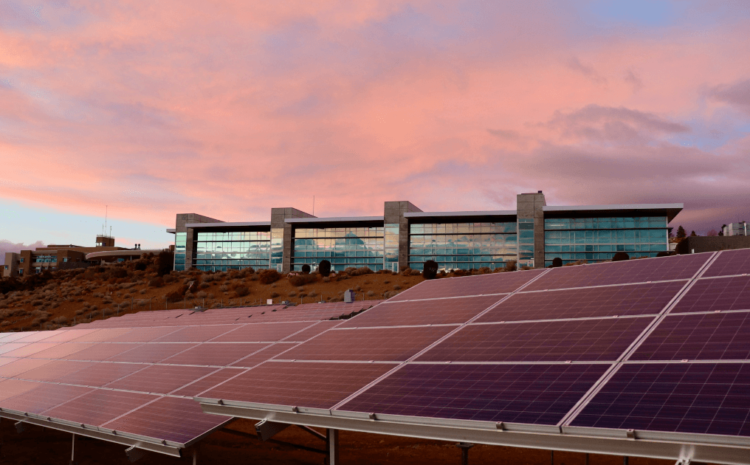
Is Solar Energy Renewable or Nonrenewable?
Solar energy, plays an important role in future energy and sustainability and generation. And People on Pakistan know this, many individuals and business owners are also opting for this green and renewable energy and taking first step towards better future. Not only just residential individuals, and big companies, but also educational institutes, are thinking of solar energy as a possible alternative to fight against the high-priced grid power supply, extensive power outages. As per their usage and step forwards green energy solargenic will be the best solar for all these individuals and companies. As people are looking forward to the benefits of solar energy day by day… misconceptions and confusions are also coming along. To understand the benefits of solar energy, it is important for them to address these various myths and misconceptions that make it confusing for people to opt for this sustainable source of energy. The biggest confusion people have is that is “Solar energy renewable or nonrenewable”.
A renewable energy source is any source of energy that refills naturally on a human timescale. Non-renewable energy sources like natural gas, oil, and coal aren’t renewable since they form over hundreds of thousands of years, which makes them unable to replenish at the rate human’s use them today. No doubt that it’s a renewable resource, which means it won’t ever run out or be in short supply. We simply need to build enough solar panels to capture it. ( NASA scientists claimed that the sun is about halfway through its lifetime, that means we have about 4.5 billion years to take advantage of solar energy.) Solar energy is an incredibly reliable energy resource, and will always be available for us to use. Having a good Solar Panel Monitoring System like Solargenic can save you a pretty big deal of bucks and increase a pretty big deal of your solar plants energy efficiency.
Solar energy is undoubtedly one of the most talked-about topics in the world today, and for good reason. It offers a clean and abundant source of power that holds the potential to revolutionize our energy landscape. However, a fundamental question often arises: Is solar energy renewable or nonrenewable? Let’s delve into this question, exploring the nature of solar power and why it holds a prominent place in our sustainable future.
Solar energy is, without a doubt, a renewable source of energy. Unlike nonrenewable sources such as fossil fuels (coal, oil, and natural gas), which are finite and deplete over time, solar energy is harnessed from an essentially limitless and constant source—the sun. The sun, a giant ball of hot, glowing gas, radiates an enormous amount of energy into space every day. This energy, known as solar radiation, reaches our planet and can be captured and converted into electricity using various technologies.
The key to understanding why solar energy is renewable lies in the sun’s life span. The sun has been shining for billions of years and is expected to continue doing so for billions more. In practical terms, this means that as long as the sun is burning, we will have access to an abundant source of solar energy. Unlike fossil fuels, which took millions of years to form and are being consumed at an alarming rate, solar energy is here to stay.
Here are some of the reasons why solar energy is unquestionably renewable:
- 1. Abundance: The sun is an immense and essentially inexhaustible energy source. In just one hour, the sun’s energy reaching Earth is sufficient to power our world’s energy needs for an entire year.
- Sustainability: Solar panels and other solar technologies are built to last for decades. With proper maintenance, they can continue to harness energy for generations to come.
- Minimal Environmental Impact: Unlike fossil fuel extraction, which often leads to habitat destruction and water pollution, solar energy generation has a relatively low environmental footprint. It doesn’t release harmful greenhouse gases or pollutants into the air or water.
- Energy Independence: By harnessing solar energy monitoring system, communities and individuals can reduce their reliance on centralized energy grids and achieve a level of energy independence, increasing resilience against power outages and energy disruptions.
- Ongoing Technological Advancements: Solar technology continues to evolve, becoming more efficient and affordable. This ongoing innovation ensures that solar energy remains a viable and sustainable solution.
Solar energy systems also benefit from the use of solar monitoring systems or solar remote monitoring system. These technologies allow users to track their energy production and consumption in real-time. By monitoring energy production, individuals and organizations can optimize their solar installations for maximum efficiency. Simultaneously, energy monitoring systems enable users to become more conscious of their energy use, promoting energy conservation and responsible energy management. Solar energy is undoubtedly a renewable source of power, harnessing the sun’s abundant and virtually limitless energy. Its sustainability, minimal environmental impact, and potential for energy independence make it a vital component of our transition to a more sustainable and greener future. As technology continues to advance and the world embraces solar solutions, we can expect solar energy to play an increasingly significant role in our quest for a cleaner and more sustainable energy landscape.